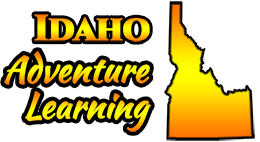Public Land and Human Health Connection
Submitted by Jenny Kaylor on Thu, 2017-07-13 00:00
What would life be like if we didn`t have public lands? Imagine not being able to go hiking, biking, fishing, hunting, camping, to go to the park, or to access rivers and lakes. What would you do? How would you spend your free time? Think about why you like to get outside in the first place? What benefit does it provide you? Would you fight to maintain that benefit? What other benefits does nature provide to mankind? Would you fight to protect those? What, if any, benefits does mankind provide to the environment? If you take time to ponder these questions I think it will quickly become obvious that we benefit so much more from the environment than it does from us. We could not live without it, but it would do just fine without us. In fact, it would no doubt be better off. For many, understanding how crucial the environment is to man`s survival is the only way they will be motivated to protect it.

Comments
Public land and human impact
That is a great point Jenn that the environment would be just fine without us......for millions of years nature flourished before man set foot on earth. I think the Native Americans are an exceptional example of treating our earth & life on earth with the highest level of respect. I think we can certainly learn a lot from them. In my classroom, I try to convey to my students how fragile our earth really is as we engage in whole-class discussions regarding human impact on our planet. We discuss global warming, pollution, eutrophication, ozone depletion, habitat destruction.....I wish we had more time to cover this very important topic!! In my opinion, this is one of the most important relevant topics facing young people today. I really believe we have a duty to to educate our students so that they not only become informed, globally responsible citizens but commit to raising their own children with a deep respect for our earth.
Public Lands and Environmental Education
As an elementary educator working with students in poverty, I see many children that are not exposed to the outdoors, public land use, or the human impact on the environment. These students begin learning about the environment when they come to school. It is important that we as teachers remember that we are often the front line when teaching about issues like global warming, human threats to our environment, public land use, water conservation, and recycling. It is very exciting when students at the end of third grade say that science was their favorite subject. Teaching these kids to respect our earth, is like paying it forward.
Poverty and the effects on students
You make a great point, I have seen this far too often that students living in poverty often do not get to experience some of the great things that Idaho has to offer such as the use of public land. The only exposre some of these students get to seeing wildlife and these great parks and land are only in the classroom. I previously taught elementary and I would have student in the sixth grade that had never really experienced things other than the grocery store or walmart due to lack of transportation and money. The field trips provided by the school was their only outlet to nature.